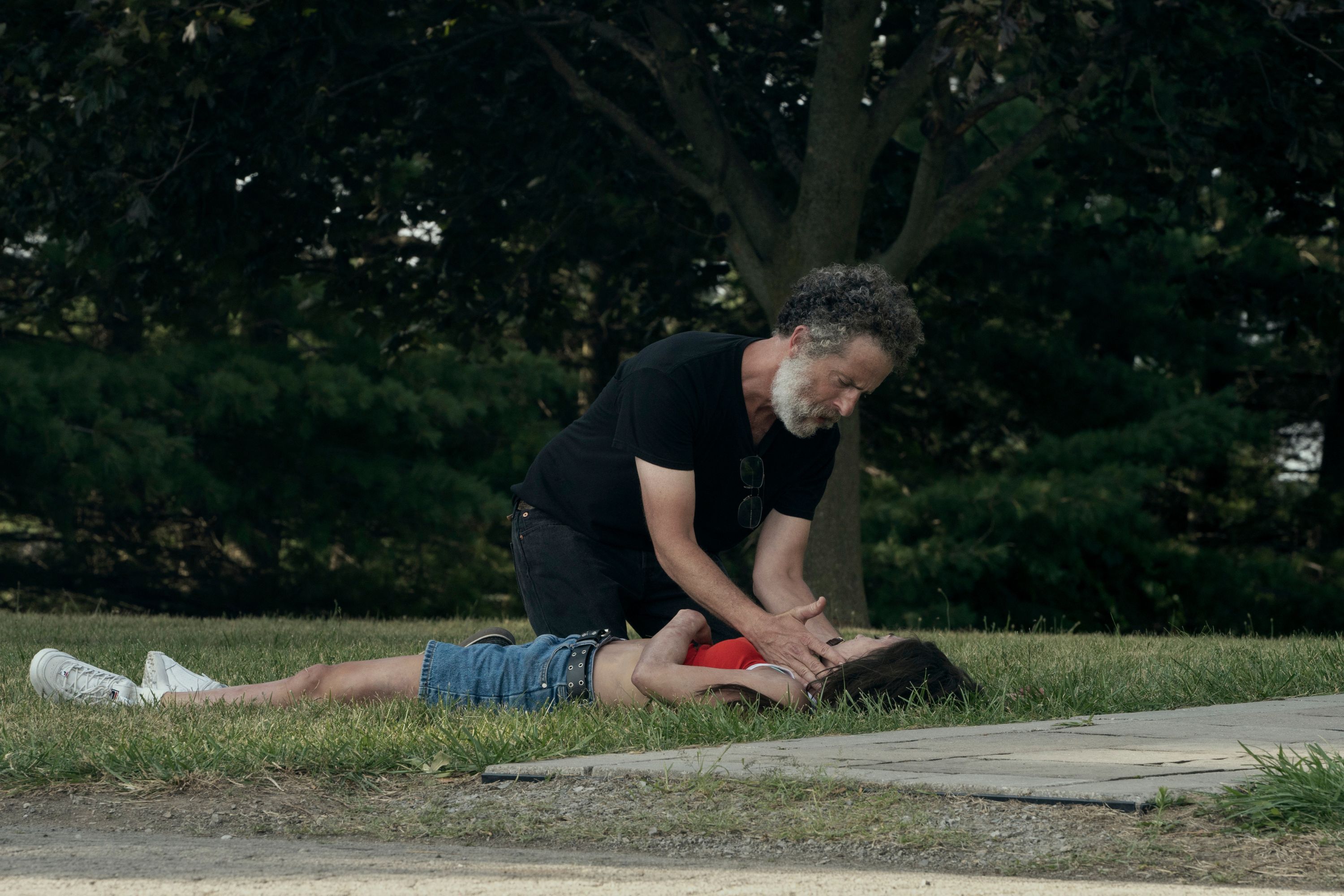Is Painkiller a true story? The truth behind the hit Netflix show
The tragic events in Netflix's new limited series have many wondering if Painkiller is a true story

Netflix's new hit series details the tragic beginnings of the opioid crisis, but is Painkiller a true story?
The new hit limited series Painkiller has audiences glued to their screens as the show details the grim and heartbreaking origins of America's opioid crisis. A fictionalised retelling of events, the popular show highlights the stories of the perpetrators, victims, and truth-seekers whose lives are forever altered by OxyContin - and it's shot to the top of Netflix's most-watched list.
Netflix has released another new drama about America's opioid crisis, which has left viewers wondering if Pain Hustlers is a true story. And while many viewers ask where Richard Sackler is now and want to know more about the Painkiller cast, others are wondering if Painkiller is based on a true story too.
Is Painkiller a true story?
Netflix's Painkiller is based on a true story. However, while the plot is rooted in fact, the storylines have been dramatised, and per Netflix's official description it is a "fictionalized retelling of events."
The show uses the 2003 book Pain Killer by Barry Meier and the 2017 New Yorker article The Family That Built an Empire of Pain by Patrick Radden Keefe as its source material. Speaking about the importance of these two writings, the show's writer Noah Harpster told Netflix, "They’re just walking encyclopedias on the Sacklers and the opioid crisis."
The show also uses research on the real-life Sackler family that details their role in beginning the painfully real US opioid epidemic through their company Purdue Pharma, which pushed the drug OxyContin despite its harmful effects. The show also features testimony from families who have lost loved ones due to Oxycontin addiction, with their stories reflected in the journeys of the show's characters.

Is Oxycontin a real drug?
Oxycontin is a real drug and is part of the opioid class of drugs that are used to reduce pain - known as painkillers. It is prescribed for relief from moderate to severe pain. It was developed and patented by Purdue Pharma.
Parenting advice, hot topics, best buys and family finance tips delivered straight to your inbox.
One of the executive producers on Netflix's Painkiller, Alex Gibney, told Netflix, "OxyContin is a drug that has some valuable medical uses. But when it was marketed too broadly, without concern for its dangers, it was inappropriately and too widely prescribed, which led to massive addiction. That spilled out over, and over, and over again in communities across North America."
OxyContin hit the American market in 1996 and, with wide-reaching promotional efforts, sales of the drug brought in $3 billion with over 14 million prescriptions for the painkiller being filled. To put the over-promotion of the drug into perspective, in 2001 alone Purdue Pharma spent roughly $200 million on the marketing and promotion of OxyContin.
The drug is still a huge social problem and it is estimated that over 300,000 people have died over the past two decades alone from overdoses on prescription opioids like OxyContin.

Who are the Sackler family?
The Sackler family are the owners of Purdue Pharma, a pharmaceutical company whose main pushed drug is Oxycontin. They are real people and are one of the wealthiest families in the US with an estimated worth of £11bn.
The family bought the company that would become Purdue Pharma in 1952, with patriarch Arthur’s knowledge of medical marketing combined with the fact that his two brothers’ - who were also his business partners - were doctors, meant the company could create and market drugs with relative ease.
They released OxyContin to the American market in 1996 and marketed it heavily, making promotional material and pushing it to the public despite allegations that they knew about its highly addictive properties.
But while the Netflix show Painkiller focuses on this true crime aspect of the opioid crisis, portraying the Sackler family as 'criminals' who 'played a special role' in beginning the opioid crisis, the show itself admits, "No member of the Sackler family has ever been criminally charged in connection with the marketing of OxyContin, or any overdose deaths involving the drug."

What happened to Purdue Pharma?
Purdue Pharma has been sued so severely for its part in starting the opioid crisis that the company was dissolved in 2021. Not only have all the company's assets been turned over, but the company’s owners were forced to give billions of dollars of their own personal fortune to help address the effects of the American opioid epidemic.
The bankruptcy plan ended thousands of individual lawsuits brought by local US governments, tribes, hospitals and individuals to draw attention to and put an end to the opioid crisis.
The resulting funds will go towards a $6bn settlement - of which $750m will be allocated to victims and families of those affected by the opioid crisis.
The settlement is still ongoing and it is unsure whether or not it will go ahead. The US supreme court just this month halted proceedings as Joe Biden’s administration has challenged the legality of the bankruptcy settlement, saying that it wrongly shields the company owners, the Sackler family, from further lawsuits and gives them 'immunity' from any more hearings.
The court will resume the case in October.

Are Glen Kryger, Shannon Schaffer, and Edie Flowers based on real people?
Glen Kryger, Shannon Schaffer, and Edie Flowers are not real people, though they are all based on the experiences of people who were affected by the opioid crisis.
Glen Kryger, played by Taylor Kitsch, is a fictional character, but his story represents the hundreds of real-life people who became addicted to OxyContin after being prescribed it for pain relief. The show follows Glen as he develops a substance addiction and explores the resulting impact his addiction has on both him and his family. The storyline is influenced by the testimony of real-life people whose loved ones died due to OxyContin abuse.
Similarly, the story of Shannon Schaffer, played by West Duchovny, was influenced by the experience of a real sales representative who sold OxyContin to doctors, though Shannon Schaffer herself is not a real person.
Played by Uzo Aduba, the dedicated US Attorney investigator Edie Flowers is a fictional character showing the combined experience of all the early prosecutors and law enforcement officers who helplessly watched on as the opioid crisis slowly took over their communities.
For those who've raced through all six episodes, we've also explained the ending of Painkiller and weighed in on the Dopesick vs Painkiller debate. And, in other TV news, we reveal if the Sixth Commandment is a true story, if The Bear is based on a true story and we've taken a look at the Jeffrey Dahmer Story too.
Charlie Elizabeth Culverhouse is a news writer for Goodtoknow, specialising in family content. She began her freelance journalism career after graduating from Nottingham Trent University with an MA in Magazine Journalism, receiving an NCTJ diploma, and earning a First Class BA (Hons) in Journalism at the British and Irish Modern Music Institute. She has also worked with BBC Good Food and The Independent.